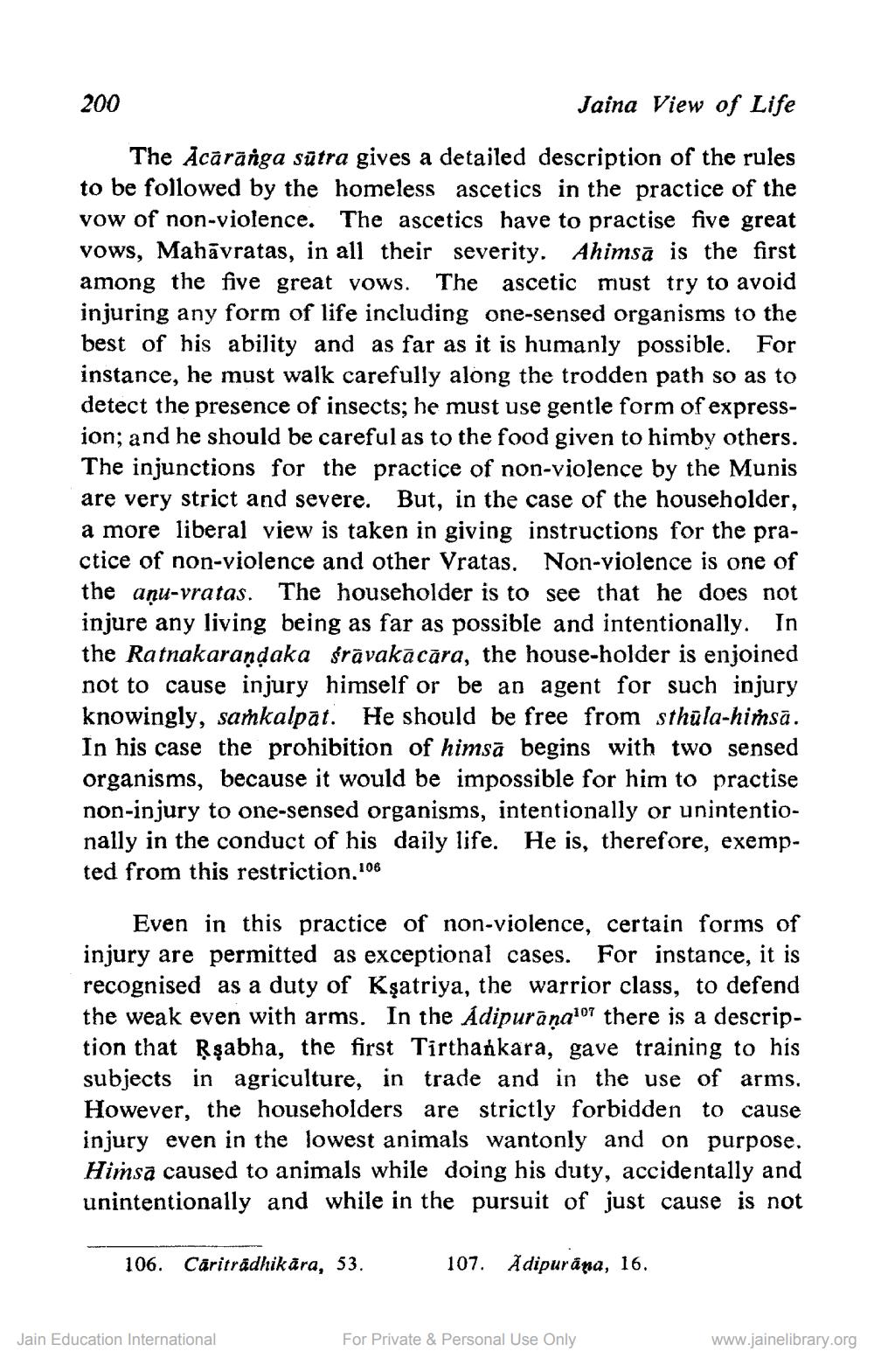________________
200
Jaina View of Life
The Acaranga sūtra gives a detailed description of the rules to be followed by the homeless ascetics in the practice of the vow of non-violence. The ascetics have to practise five great vows, Mahāvratas, in all their severity. Ahimsa is the first among the five great vows. The ascetic must try to avoid injuring any form of life including one-sensed organisms to the best of his ability and as far as it is humanly possible. For instance, he must walk carefully along the trodden path so as to detect the presence of insects; he must use gentle form of expression; and he should be careful as to the food given to himby others. The injunctions for the practice of non-violence by the Munis are very strict and severe. But, in the case of the householder, a more liberal view is taken in giving instructions for the practice of non-violence and other Vratas. Non-violence is one of the aņu-vratas. The householder is to see that he does not injure any living being as far as possible and intentionally. In the Ratnakarandaka frāvakācāra, the house-holder is enjoined not to cause injury himself or be an agent for such injury knowingly, samkalpat. He should be free from sthūla-hirsā. In his case the prohibition of himsā begins with two sensed organisms, because it would be impossible for him to practise non-injury to one-sensed organisms, intentionally or unintentionally in the conduct of his daily life. He is, therefore, exempted from this restriction.106
Even in this practice of non-violence, certain forms of injury are permitted as exceptional cases. For instance, it is recognised as a duty of Ksatriya, the warrior class, to defend the weak even with arms. In the Adipuranalo there is a description that Rşabha, the first Tirthankara, gave training to his subjects in agriculture, in trade and in the use of arms. However, the householders are strictly forbidden to cause
y even in the lowest animals wantonly and on purpose Himsa caused to animals while doing his duty, accidentally and unintentionally and while in the pursuit of just cause is not
injur
106. Cáritrādhikara, 53.
107. Adipurána, 16.
Jain Education International
For Private & Personal Use Only
www.jainelibrary.org




